Potřebujeme váš souhlas k využití jednotlivých dat, aby se vám mimo jiné mohly ukazovat informace týkající se vašich zájmů. Souhlas udělíte kliknutím na tlačítko „OK“.
ASTM F1264-14
Standard Specification and Test Methods for Intramedullary Fixation Devices
Automaticky přeložený název:
Standardní specifikace a zkušební metody pro nitrodřeňové fixatérů
NORMA vydána dne 1.11.2014
Informace o normě:
Označení normy: ASTM F1264-14
Poznámka: NEPLATNÁ
Datum vydání normy: 1.11.2014
Kód zboží: NS-583357
Počet stran: 19
Přibližná hmotnost: 57 g (0.13 liber)
Země: Americká technická norma
Kategorie: Technické normy ASTM
Kategorie - podobné normy:
Anotace textu normy ASTM F1264-14 :
Keywords:
bend testing, definitions, extraction, fatigue test, fracture fixation, implants, intramedullary fixation devices, orthopaedic medical device, performance, surgical devices, terminology, test methods, torsion test, trauma,, ICS Number Code 11.040.40 (Implants for surgery, prothetics and orthotics)
Doplňující informace
| Significance and Use | ||||||||||||||||||||||||||||||||||||||||
| A1.4 Significance and Use
A1.4.1 This test method describes a static bending test to determine the bending stiffness and bending strength of the central and uniform portions of an IMFD. A1.4.2 This test method may not be appropriate for all types of implant applications (i.e., in proximal or distal extremity of an IMFD where screw holes exist). The user is cautioned to consider the appropriateness of the method in view of the devices being tested and their potential applications. |
||||||||||||||||||||||||||||||||||||||||
| 1. Scope | ||||||||||||||||||||||||||||||||||||||||
|
1.1 This specification is intended to provide a characterization of the design and mechanical function of intramedullary fixation devices (IMFDs), specify labeling and material requirements, provide test methods for characterization of IMFD mechanical properties, and identify needs for further development of test methods and performance criteria. The ultimate goal is to develop a standard which defines performance criteria and methods for measurement of performance-related mechanical characteristics of IMFDs and their fixation to bone. It is not the intention of this specification to define levels of performance or case-specific clinical performance of these devices, as insufficient knowledge to predict the consequences of the use of any of these devices in individual patients for specific activities of daily living is available. It is not the intention of this specification to describe or specify specific designs for IMFDs. 1.2 This specification describes IMFDs for surgical fixation of the skeletal system. It provides basic IMFD geometrical definitions, dimensions, classification, and terminology; labeling and material specifications; performance definitions; test methods and characteristics determined to be important to 1.3 Multiple test methods are included in this standard. However, the user is not necessarily obligated to test using all of the described methods. Instead, the user should only select, with justification, test methods that are appropriate for a particular device design. This may be only a subset of the herein described test methods. 1.4 This specification includes four standard test methods: 1.4.1 Static Four-Point Bend Test Method—Annex A1 and 1.4.2 Static Torsion Test Method—Annex A2. 1.4.3 Bending Fatigue Test Method—Annex A3. 1.4.4 Test Method for Bending Fatigue of IMFD Locking Screws—Annex A4. 1.5 A rationale is given in Appendix X1. 1.6 The values stated in SI units are to be regarded as standard. No other units of measurement are included in this standard. |
||||||||||||||||||||||||||||||||||||||||
| 2. Referenced Documents | ||||||||||||||||||||||||||||||||||||||||
|
Podobné normy:
Historická
1.6.2010
Historická
15.8.2010
Historická
1.9.2010
Historická
1.3.2012
Historická
1.5.2010
Historická
1.7.2011


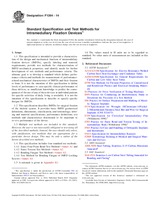
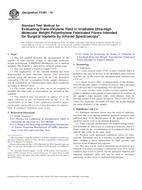 ASTM F2381-10
ASTM F2381-10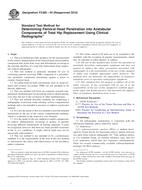 ASTM F2385-04(2010)..
ASTM F2385-04(2010)..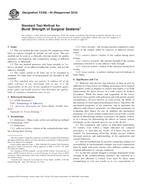 ASTM F2392-04(2010)..
ASTM F2392-04(2010)..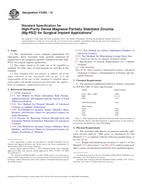 ASTM F2393-12
ASTM F2393-12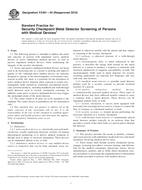 ASTM F2401-04(2010)..
ASTM F2401-04(2010)..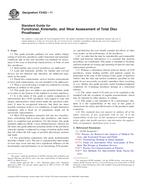 ASTM F2423-11
ASTM F2423-11
 Cookies
Cookies
